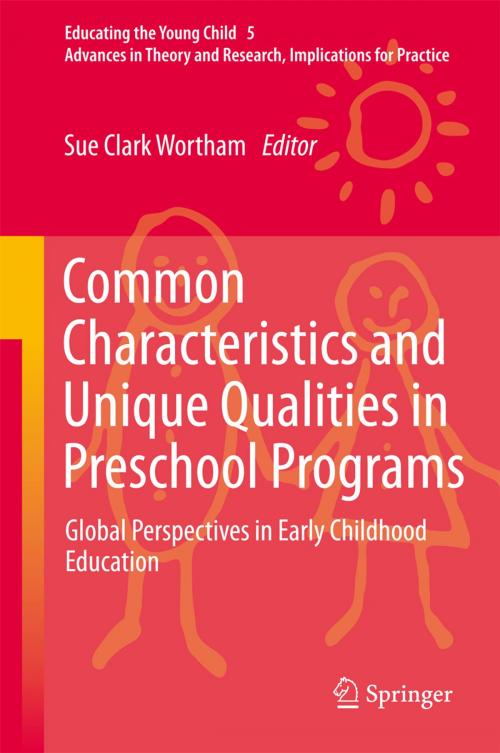Common Characteristics and Unique Qualities in Preschool Programs
Global Perspectives in Early Childhood Education
Nonfiction, Reference & Language, Education & Teaching, Educational Theory, Evaluation, Preschool & Kindergarten| Author: | ISBN: | 9789400749726 | |
| Publisher: | Springer Netherlands | Publication: | November 29, 2012 |
| Imprint: | Springer | Language: | English |
| Author: | |
| ISBN: | 9789400749726 |
| Publisher: | Springer Netherlands |
| Publication: | November 29, 2012 |
| Imprint: | Springer |
| Language: | English |
We live in a world that is transitioning from focus on early childhood education within individual countries into a global perspective that considers how early childhood education is conducted in many diverse cultures and environments. The challenge on a global basis is how to develop programs in countries and environments that are different from a specifically western perspective. Economic, geographic, and cultural influences infuse early childhood programs around the world.
In 1999, a group of educators representing 36 countries developed guidelines for establishing minimum standards for preschool programs. A purpose for developing the guidelines was to provide guidance for countries that wished to evaluate and improve their own programs. A second purpose was to help developing countries initiating preschools to have relevant information about quality programs. The later development of an assessment tool based on the Global Guidelines served as a vehicle to use the guidelines to assess a single program or multiple programs. The continuing work with these guidelines in many countries throughout the world since 2000 has resulted in the collection of information that reveals the uniqueness of programs in different countries.
We live in a world that is transitioning from focus on early childhood education within individual countries into a global perspective that considers how early childhood education is conducted in many diverse cultures and environments. The challenge on a global basis is how to develop programs in countries and environments that are different from a specifically western perspective. Economic, geographic, and cultural influences infuse early childhood programs around the world.
In 1999, a group of educators representing 36 countries developed guidelines for establishing minimum standards for preschool programs. A purpose for developing the guidelines was to provide guidance for countries that wished to evaluate and improve their own programs. A second purpose was to help developing countries initiating preschools to have relevant information about quality programs. The later development of an assessment tool based on the Global Guidelines served as a vehicle to use the guidelines to assess a single program or multiple programs. The continuing work with these guidelines in many countries throughout the world since 2000 has resulted in the collection of information that reveals the uniqueness of programs in different countries.















